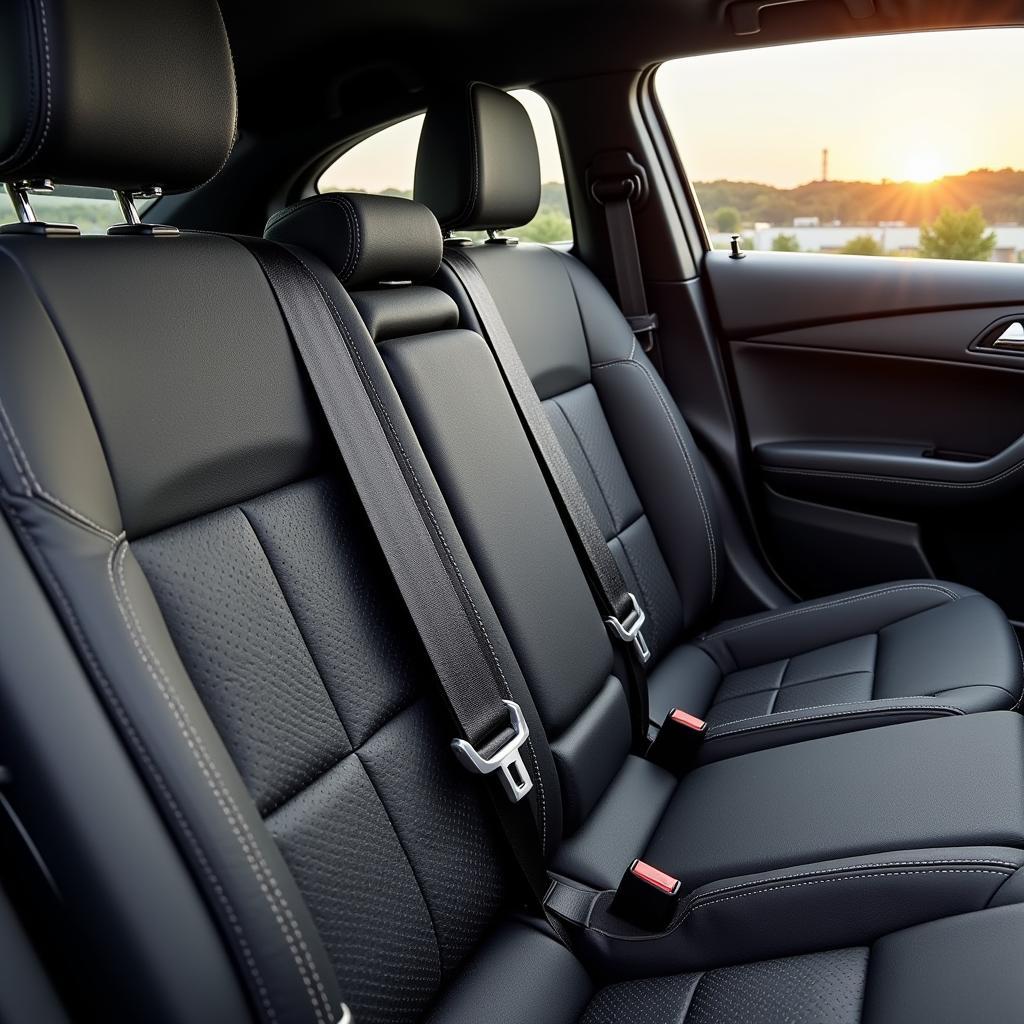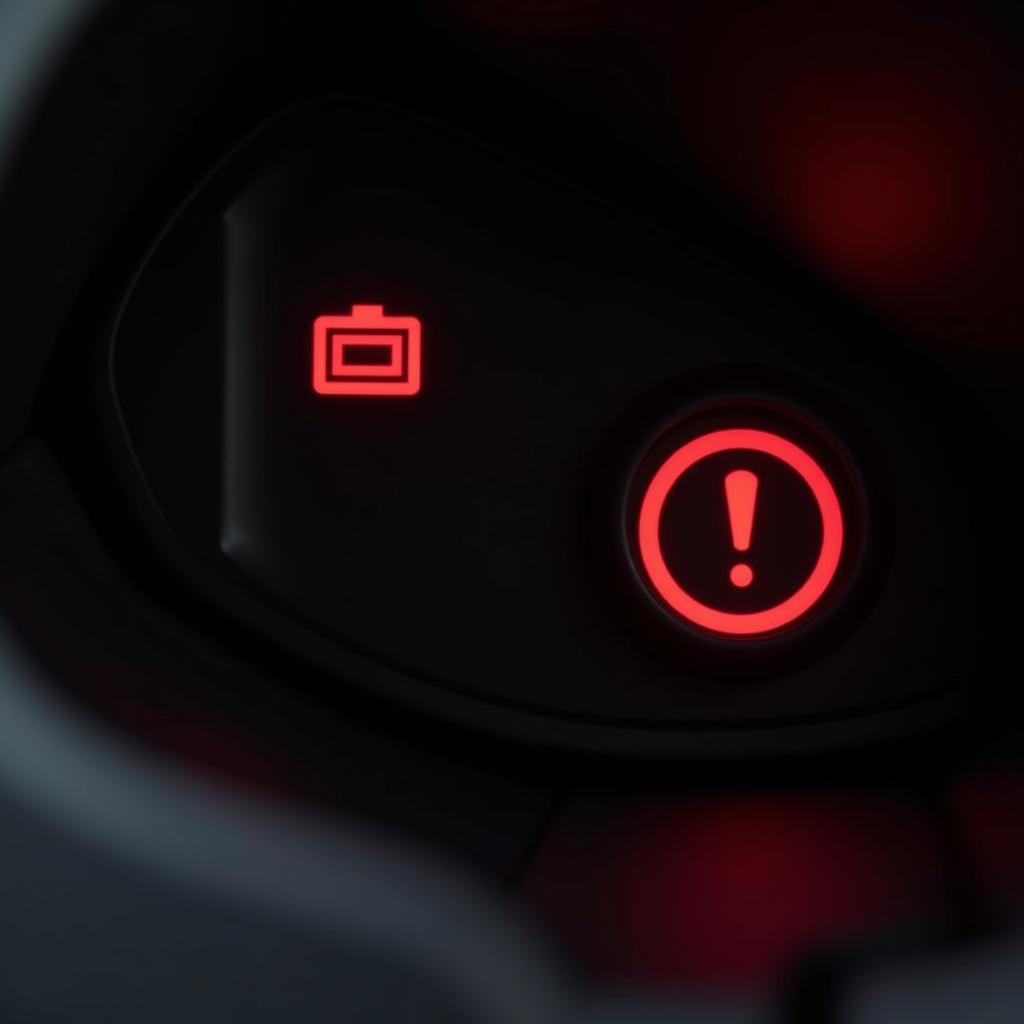You just installed a new battery, expecting your car to roar back to life, but it’s still stubbornly refusing to start. This frustrating situation is more common than you think. A new battery doesn’t always guarantee a quick fix, and figuring out the real culprit can be tricky. Let’s explore the possible reasons why your car won’t start, even with a new battery, and guide you through some diagnostic steps.
Beyond the Battery: Common Culprits When Your Car Won’t Start
While a dead battery is a frequent cause of starting problems, it’s not the only one. Even a new battery but car still wont start scenario can point to several other issues. These can range from simple problems like corroded terminals to more complex ones like a faulty starter or alternator.
Checking the Obvious: Connections and Cables
First things first, double-check your battery connections. Loose or corroded terminals can prevent the battery from delivering power effectively, even if it’s brand new. Make sure the positive and negative cables are securely attached and free of corrosion. A simple wire brush can clean off corrosion, ensuring a good connection.
Delving Deeper: Starter Motor Issues
If your connections are good, the starter motor could be the next suspect. The starter is responsible for cranking the engine, and if it’s malfunctioning, your car won’t start, new battery or not. You might hear a clicking sound when you turn the key, indicating a faulty starter solenoid or a lack of power reaching the starter.
The Alternator’s Role: More Than Just Charging
The alternator charges the battery while the engine is running. A failing alternator can drain a new battery quickly, leaving you stranded. If your car starts but dies shortly after, a bad alternator could be the culprit. You can test the alternator’s output voltage with a multimeter to confirm its functionality.
Fuel System Woes: From Pump to Filter
A faulty fuel pump or a clogged fuel filter can also prevent your car from starting. The fuel pump delivers fuel to the engine, and a clogged filter restricts fuel flow. While unrelated to the battery, these issues can mimic the symptoms of a dead battery.
Ignition System Check: Spark Plugs and Ignition Coil
The ignition system ignites the air-fuel mixture in the engine cylinders. Worn spark plugs or a failing ignition coil can prevent the engine from firing up, even with a new battery.
Troubleshooting Your Car’s Starting Problem: A Step-by-Step Guide
- Check the battery connections: Ensure they are clean and tight.
- Listen for the starter: A clicking sound might indicate a starter problem.
- Test the alternator: Check its output voltage with a multimeter.
- Inspect the fuel system: Check the fuel pump and filter.
- Examine the ignition system: Inspect spark plugs and the ignition coil.
Expert Insights: Professional Advice on Car Starting Issues
“Often, people jump to the conclusion that a dead battery is the issue,” says automotive electrical specialist, David Miller. “However, it’s essential to systematically check other components, such as the starter, alternator, and fuel system, to pinpoint the exact cause of the problem.”
“A new battery doesn’t solve underlying electrical issues,” adds Sarah Johnson, a seasoned automotive technician. “If your car won’t start even after replacing the battery, it’s crucial to seek professional diagnostics to avoid further damage.”
In conclusion, even with a new battery but car still wont start situations are common and can be caused by a variety of issues beyond the battery itself. By systematically checking the connections, starter, alternator, fuel system, and ignition system, you can narrow down the problem and get your car back on the road. If you’re unsure about any of these steps, seeking professional assistance is always recommended.
FAQ
- Can a bad alternator drain a new battery? Yes, a faulty alternator can quickly drain even a brand new battery.
- What does a clicking sound when starting the car indicate? A clicking sound usually points to a starter motor or solenoid problem.
- How do I test the alternator’s output voltage? Use a multimeter to check the voltage at the battery terminals while the engine is running.
- Could a faulty fuel pump prevent my car from starting? Yes, a malfunctioning fuel pump can prevent fuel from reaching the engine.
- How often should I replace my spark plugs? Consult your car’s owner’s manual for the recommended spark plug replacement interval.
- What are the signs of a clogged fuel filter? Difficulty starting, rough idling, and poor acceleration can indicate a clogged fuel filter.
- Should I replace the battery myself or take it to a professional? While replacing a battery is a relatively simple task, if you’re unsure, it’s always best to seek professional assistance.


